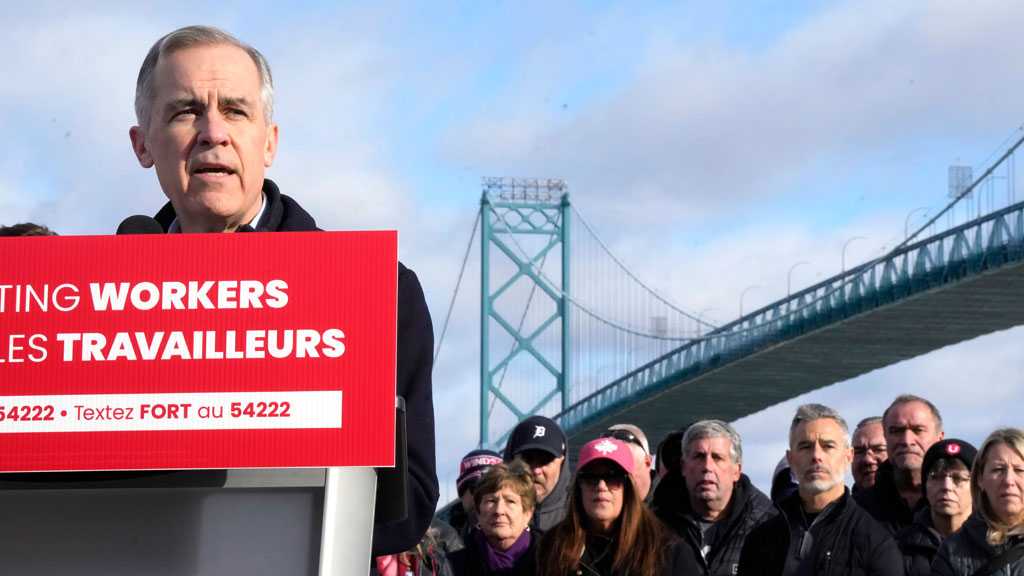
Canadian Prime Minister Mark Carney has condemned US President Donald Trump’s newly announced 25% tariffs on auto imports as a “direct attack” on Canada, warning that the move will devastate the country’s auto industry and hurt American workers alike.
Speaking from Windsor, Ontario—home to a major share of Canada’s auto manufacturing—Carney vowed to defend Canadian workers and businesses while criticizing Trump’s broader trade war.
“We will defend our workers. We will defend our companies. We will defend our country,” Carney declared, adding that the tariffs threaten an industry that directly employs 125,000 Canadians and supports nearly 500,000 more.
In response, Carney announced a CA$2 billion [$1.4 billion] “strategic response fund” aimed at protecting Canadian auto jobs and stabilizing the industry in the wake of Trump’s latest trade escalation.
Trump’s tariffs come amid his broader protectionist policies, which have already targeted Canada’s steel and aluminum industries and now threaten sweeping tariffs on all Canadian imports starting April 2.
The president insisted the auto tariffs were “permanent,” further fueling tensions between the two nations. Carney, who was sworn in as prime minister on March 14, said he would return to Ottawa to lead emergency Cabinet discussions on possible retaliatory measures.
The impact of the tariffs could be severe given the deeply integrated nature of North America’s auto industry.
Auto parts frequently cross the Canada-US border multiple times before final assembly, and Ontario Premier Doug Ford warned that plants in both countries could face simultaneous shutdowns.
“President Trump is calling this ‘Liberation Day.’ I call it ‘Termination Day’ for American workers,” Ford said. “I know President Trump likes to tell people ‘You’re fired!’—I just didn’t think he meant US auto workers when he said it.”
The tariffs have also drawn strong criticism from Carney’s political opponents. Conservative opposition leader Pierre Poilievre urged Trump to reverse course, calling the tariffs “reckless” and pointing out that they would harm American auto workers as much as Canadian ones.
Adding to Canadian frustrations, Trump has continued to suggest that Canada should become the 51st US state—a position that has outraged many Canadians. At a recent election rally in Kitchener, Ontario, crowds repeatedly booed the US president’s name. Meanwhile, despite nearly two weeks in office, Carney has yet to receive a call from Trump, a highly unusual delay in US-Canada relations.
“It would be appropriate that the president and I speak given the action he has taken. I’m sure that will happen soon,” Carney said.
Economic concerns in the US are also growing, with the Conference Board reporting that consumer confidence has hit a multi-year low, dropping for the fourth consecutive month. Analysts warn that higher auto prices and disrupted supply chains could further weaken economic conditions.
Despite the uncertainty, Carney insisted that Canada would stand firm. “He wants to break us so America can own us,” Carney said. “And it will never, ever happen, because we don’t just look out for ourselves—we look out for each other.”

No comments:
Post a Comment